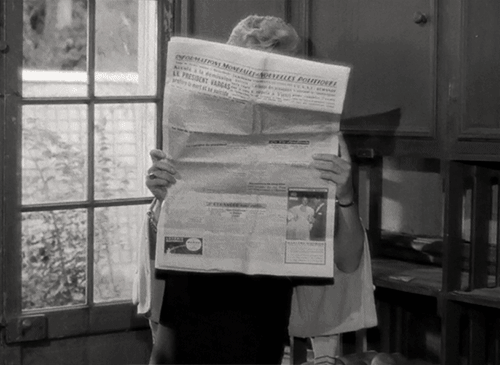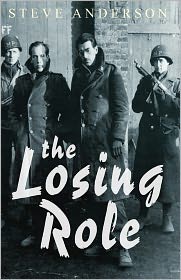 West
Germany, 1949. Former actor Max Kaspar suffered greatly in the Second World War. Now he owns a nightclub in
Munich—and occasionally lends a hand to the newly formed CIA. Meanwhile, his brother Harry has ventured
beyond the Iron Curtain to rescue an American scientist. When Harry is also taken captive, Max resolves to
locate his brother at all costs. The last thing he expects is for Harry to go rogue.
West
Germany, 1949. Former actor Max Kaspar suffered greatly in the Second World War. Now he owns a nightclub in
Munich—and occasionally lends a hand to the newly formed CIA. Meanwhile, his brother Harry has ventured
beyond the Iron Curtain to rescue an American scientist. When Harry is also taken captive, Max resolves to
locate his brother at all costs. The last thing he expects is for Harry to go rogue.
Max's treacherous quest takes him to Vienna and Prague to Soviet East Germany and Communist Poland. Along the way, dangerous operators from Harry's past join the pursuit: his former lover Katarina, who's working for the Israelis, and former Nazi Hartmut Dietz, now an agent of East German intelligence. But can anyone be trusted? Even the American scientist Stanley Samaras may not be the hero Harry had believed him to be...
In the fourth novel of the Kaspar Brothers series, Steve Anderson cranks up the dramatic tension. The story is set in a postwar Europe transitioning to the Cold War. The Soviets have begun to flex their muscles in Europe, and the Americans are trying to hold them off while the U.K. and France are busy mending their wounds. Weary of war, all sides have resorted to brinkmanship to see who takes the leadership role for the second half of the twentieth century.
Into this setting, we reunite with Max, who we first met in The Losing Role, where he was an operative in Operation Greif during the Battle of the Bulge. Max spent most of that novel running scared, fearing for his life. He wasn't a hardened soldier or zealous SS officer. He was just a down an out German actor conscripted into service.
But since the war, he's spent the time trying to forget it, except when he's called upon to do the right thing (as in Lost Kin) because the factions may have changed, but there are still evil men in the world bullying the weak and downtrodden. And it makes him angry. When he's visited by an odd, little man while working at his nightclub that anger resurfaces. The man claims that Max's brother Harry is being held for ransom, which Max must deliver. Max is furiously protective of his brother and can barely restrain himself from taking it out on the messenger. Later, when Max encounters the man responsible for the death of a dear friend, he so desperately wants the man to suffer, but as the man is necessary to complete the mission, he has to tamp down that anger.
As suggested in the book blurb, no one is completely forthright with Max. Whether that's to protect him or deceive him is dependent on the person in question. It leads to a constant string of surprises for Max (and the reader), forcing him to react quickly or change plans in order to find his brother and get home safely. He reacts differently to these deceptions. They become a way for him to work through his anger, on some level accepting what he cannot change, which leaves him exhausted.
Lines of Deception is another solid entry in the Kaspar Brothers series. The setting is thoroughly researched with Anderson dragging in historical events to craft a credible and entertaining story. Strong characterization leads the reader into believing what the characters are telling Max, but when their deceptions are revealed, it doesn't strike one as being out of character. One realizes that Anderson left clues all along the way. Ultimately, it enables Anderson to turn a spy thriller into catharsis for his protagonist.
4 stars
\_/
DED
 After
the events in
After
the events in  In
the early days of post-war Germany, Captain Harry Kaspar has been assigned by the
US military government to oversee recovery efforts in the town of Heimgau.
Unfortunately, the post is already occupied by Major Membre. It seems that the
office that assigned Membre supersedes the one that picked Kaspar, and
obviously the major outranks the captain.
In
the early days of post-war Germany, Captain Harry Kaspar has been assigned by the
US military government to oversee recovery efforts in the town of Heimgau.
Unfortunately, the post is already occupied by Major Membre. It seems that the
office that assigned Membre supersedes the one that picked Kaspar, and
obviously the major outranks the captain.
 April 15th:
April 15th:
 We're a little light in this first edition
of Author News, but I wanted to make good on that promise.
We're a little light in this first edition
of Author News, but I wanted to make good on that promise.



 These are three very different stories: historical fiction, contemporary thriller and medieval high fantasy. And all of them were written by my fellow reviewers. I wanted to praise them for their hard work, but to avoid cries of nepotism, I shall pick another story.
These are three very different stories: historical fiction, contemporary thriller and medieval high fantasy. And all of them were written by my fellow reviewers. I wanted to praise them for their hard work, but to avoid cries of nepotism, I shall pick another story.
 Late in 1944, the German Army pressed westward along the western front in a desperate attempt to break the Allied advance. The offensive would later come to be known as
Late in 1944, the German Army pressed westward along the western front in a desperate attempt to break the Allied advance. The offensive would later come to be known as